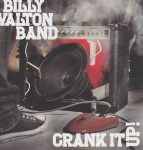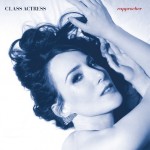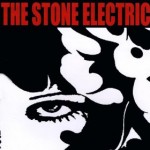 If you’re a regular visitor to MusicRiot, you may have noticed that we’re keeping a close eye on the Billy Walton Band here at Riot Towers. There’s a simple reason for that; they’re very good.
If you’re a regular visitor to MusicRiot, you may have noticed that we’re keeping a close eye on the Billy Walton Band here at Riot Towers. There’s a simple reason for that; they’re very good.
“Crank It Up!” is the fourth album from the Billy Walton Band, following 2 studio albums and a live set recorded at The Stone Pony in Asbury Park. Billy Walton and bass player William Paris have been together from the start, playing alongside various studio and live players to bring the Billy Walton Band to the world.
First of all, if you haven’t read any reviews of the Billy Walton Band live, you need to know that Billy Walton is a great guitar player. The first 2 studio albums (“Billy Walton Band” and “Neon City”) tended to focus on the guitar playing, although the songs “Neon City” and “Soul Song” on the second album also show a genuine songwriting talent emerging.
For the third studio album, there are a couple of crucial differences to the mix. First of all, Billy Walton is writing with keyboard player Randy Friel who also plays on the album. Secondly, the band is also joined by tenor sax player Richie Taz but more about that later.
Conventional wisdom says that you open the album with a big track and the title track “Crank It Up” covers that one from the opening riff. It’s a big good-time song featuring a horn section and it wouldn’t have sounded out of place on either of the first two albums. You could probably say the same for the second track “Lifeline” where the intro gives a brief nod in the direction of Keith Richards and features the first low-key contribution from Richie Taz. Both tracks are good, but they only give a taste of the quality to come.
“Summertime Girl” feels like Springsteen’s Jersey shore twenty years down the line, and an arrangement which features piano and organ accentuates the E Street Band feel of the song. If this song was on a Bon Jovi or Springsteen album it would be a Top 40 single. “The Deal Went Down”, later on the album, has the same personal Jersey feel with a nod in the direction of The Boss’s “Spirit in the Night” and more great sax from Richie Taz.
“Deal with the Devil” is a country blues which again demonstrates Billy’s versatility, featuring acoustic guitar, where he rejects the bargain that Robert Johnson made. “Till Tomorrow” is another song which is strong lyrically, features great horns in the chorus, plenty of hooks and a lovely understated guitar solo leading to the fadeout. “One in a Million” and “Hot Blues” are both firmly back in blues territory, taking the album full circle back to the rock-out ending of “Black Jack Dealer” featuring a vocal from William Paris.
By any standards, this is a good album which you really should be listening to if you like real songs and real instruments. It’s an important step for the Billy Walton Band because the playing is as good as ever but the songs here are better and more personal than on the previous 2 studio albums and the band line-up and arrangements seem to work together much better.
You can get a copy at www.billywaltonband.com or, even better, go watch the band live when they tour the UK in April and buy a copy there; a great night out and a great album to take home with you. What more could you want?
 Class Actress, aka Brooklyn based singer Elizabeth Harper and producer Mark Richardson’s, debut album could have been released at any time during the peak of the brief, but surprisingly influential, Electroclash movement of 2001-2003. It’s self-conscious, ironic and armed with relentless synths and arch female vocals but unlike the majority of the music released during this period it doesn’t reference cocaine, sunglasses or Frank Sinatra.
Class Actress, aka Brooklyn based singer Elizabeth Harper and producer Mark Richardson’s, debut album could have been released at any time during the peak of the brief, but surprisingly influential, Electroclash movement of 2001-2003. It’s self-conscious, ironic and armed with relentless synths and arch female vocals but unlike the majority of the music released during this period it doesn’t reference cocaine, sunglasses or Frank Sinatra.
Elizabeth Harper is in her own film noir; she’s been to the club, she’s left the bar with The Man and he won’t be there in the morning and this album tries to provide a smudgy, woozy musical imprint of that evening; thing is I’m not sure if we’ll be there for breakfast either. Her vocals are reminiscent of the late 1980s Ze records icon Cristina, all cut-class vowels and a register much deeper than we’re used to hearing from this particular genre; odd Harper’s a Brooklyn girl, she sounds more like an Upper East Side Manhattanite.
‘Rapprocher’ suffers from severe front loading, the first three tracks are the best songs on the album, ‘Love You Like You Used To’ in particular hitting a perfect stride with tense, foreboding synths and Harper’s crystal clear pleading, it’s a pretty intoxicating mix. BPMs barely get above 110 and by track 7 you long to change the pace a little and the song writing begins to suffer greatly. It’s a shame because there’s a great EP here (check out their excellent, slightly rougher around the edges EP that proceeded this album; ‘Journey of Ardency’) and some brilliant, very high quality synth work.
Things do pick up again with the disorientating and interesting ‘Hanging On’ where Harper’s breathless list of bedtime favourites really does feel, er, authentic and ‘Bienvenue’ sounds a bit like an electronic, poppier Pretenders but they will need to pull something bigger and more engaging out of the bag song-wise to get the attention they will need in order to make the great album that’s hopefully in them somewhere.
 OK; I’ll admit it, I’m a bit slow out of the blocks with this one even by my standards. This album was released in 2009, but I happened to see the band a few weeks ago at a London gig and a copy was stuck into my grubby mitt so here we go.
OK; I’ll admit it, I’m a bit slow out of the blocks with this one even by my standards. This album was released in 2009, but I happened to see the band a few weeks ago at a London gig and a copy was stuck into my grubby mitt so here we go.
The Stone Electric are Noni Crow and Austyn Crow (covering all the guitars and vocals between them) and drummer Rich Matlock. It’s easy to pick out the band’s major influences and inspiration; pick any of the British blues-rocks bands of the early 70s and you won’t go far wrong. What sets them apart from the Free/Humble Pie/Bad Company stereotype is Noni Crow’s voice, which you could compare to Janis Joplin, but the great Scottish singer Maggie Bell is probably closer to the mark. And, in case you didn’t know, Maggie Bell sang with the band Stone the Crows in the early 70s.
The album opens with the scene-setting “Elephant” with a fat guitar riff and Noni Crow’s great rock voice. Like everything else on the album, fast or slow, the feel is always slightly loose, leaving room for plenty of drum and guitar fills. The pacing of the album works well, with the slower songs such as “Beggars Would Ride” and “Mercy Me” being used to break up the out and out rockers while acting as a showcase for the soulful vocals. “Gotta Get Out” sounds really familiar; the reason for that is that it’s virtually the same intro as “Speak to Me/Breathe”, the first track on “Dark Side of the Moon”. That’s not a criticism, just an observation.
If you’re into the sound of the British post-Yardbirds blues-rock bands (and lots of people 20 and 30 years too young to actually remember it are), then you should give this a listen because you’ll like it. The songs are strong, the instrumental performances are very, very good and the vocals (from Noni and Austyn Crow) make it a little bit special.
The main concern for me is how much commercial potential this sort of material has in the current market, although it’s not so far from The Black Crowes and who would have put money on them breaking through commercially 10 years ago? All I can say is that you should have a listen for yourself and the starting point for that is http://thestoneelectric.com/home.html. If you get a chance to see them live in the UK, or even on home ground in the US, then don’t miss out because they’re even better live.


